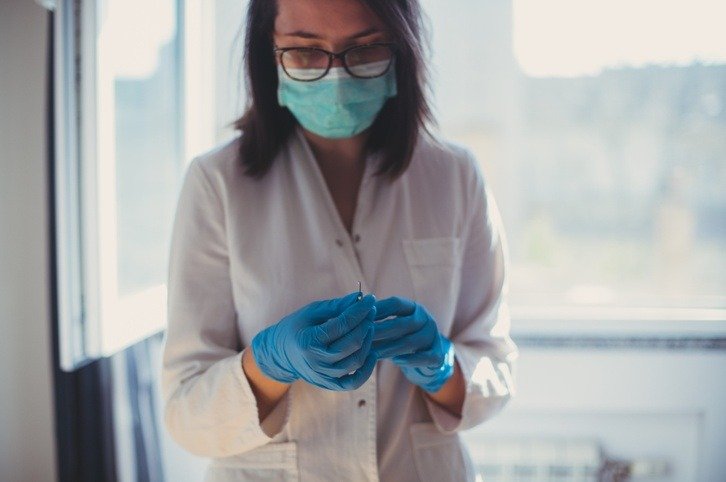
Human papillomavirus (HPV) is the most common sexually transmitted infection and can lead to serious diseases, such as cervical cancer, penile cancer and oropharynx cancer. The CDC estimates that more than 79 million people in the U.S., most in their late teens to early 20s, are living with HPV. Most people with HPV do not exhibit any symptoms so it is difficult to know if you or your partner have come into contact with the virus.
The HPV vaccine is considered highly effective and safe. More than 120 million doses of the vaccine have been distributed since it was first introduced in in 2006. Today, Gardasil® 9 is the only HPV vaccine available in the U.S. The HPV vaccine is the most effective way to prevent the spread of HPV, as HPV screening does not protect a patient against its spread. Receiving the HPV vaccine can reduce over 90% of all cancers caused by HPV which is estimated to be as many as 33,000 cases of HPV each year
Unfortunately, there is some misinformation or myths that are associated with the HPV vaccine. Continue reading to learn the facts about the HPV vaccine and why it is critical for ensuring your teen’s health and wellness.
Myth #1: The HPV vaccine is not safe
The CDC states that this is a very safe vaccine. The benefits of receiving the vaccine far outweigh the risks. Like many vaccinations and medications, there is a low risk of potential side effects. Fortunately, the negative side effects of taking the HPV are mild and include slight pain, redness and swelling in the arm where the vaccine was administered.
The HPV vaccine underwent extensive testing before being released. In fact, it was researched for more than a decade before being studied in humans. In addition, after approving the vaccine, the FDA continues to monitor its production quality and test for its potency, safety and purity.
Myth #2: Only Women Should Get the HPV Vaccine
HPV can infect both men and women. While HPV is linked to almost 100% of cervical cancer cases, with strains 16 and 18 responsible for about 70% of cervical cancer cases, it also prevents many cancers in men, such as cancer in the throat. It is recommended by the CDC that both women and men receive two doses of the Gardasil vaccine between ages 11-12 (this is when it is most effective), although you can still get vaccinated as late as age 26.
It’s critical for men to receive the HPV vaccination because it prevents them from becoming carriers of the disease and stops the spread of cancer-causing HPV to women. Each year, approximately 12,000 women are diagnosed with cervical cancer and 4,000 women die from this disease in the U.S.
Myth #3: The HPV Vaccine is not Very Effective
In clinical trials, the HPV vaccine is proven to be over 99% effective at stopping pre-cancer. Since 2006, when the vaccine was released, HPV prevalence has decreased by approximately 86% in females age 14-19 and 71% in women in their early 20s. However, the vaccine becomes less effective for preventing HPV-related diseases in people who have already been exposed to HPV. Research is still underway studying how long the vaccine lasts, but most studies show that vaccination is long-lasting and remains effective for at least ten years.
Myth #4: If I have HPV, the Vaccine Will Make It Go Away
The vaccine prevents new HPV infections from developing but does not treat active infections. Before being exposed to HPV, you must be vaccinated to prevent developing the virus. After the first dose of the two-dose vaccine, it takes about two weeks for your immune system to begin generating a response to it. The next dose helps to boost your immune response to HPV.
Myth #5: After Receiving the Vaccine, I Don’t Have to Worry About HPV
The Gardasil 9 vaccine protects you against HPV strains 16 and 18, the two strains that are responsible for most cervical cancers and other HPV-caused cancers. However, Gardasil does not protect against all the strains of HPV, so women still need to be screened for cervical cancer, as other strains may cause this type of cancer. There are 30-40 strains of sexually transmitted HPV. In addition, safe sex practices should still be taken, as it does not prevent other sexually transmitted infections. The bottom line is that the HPV vaccine does not protect against all strains of HPV, so it is possible that someone who is vaccinated can become infected with a type of HPV that is not included in the vaccine.
If you’re in Connecticut and would like to find a doctor near you to help evaluate which adult vaccinations you may need, you can locate a board-certified PACT primary care physician using our searchable list here.
Looking For a Primary Care Doctor in Connecticut?
PACT Primary Care is Accepting New Patients!
Locations throughout Connecticut in Guilford, Hamden, Madison, Milford, New Haven, Orange, West Haven and Wallingford.
To schedule an appointment, request an appointment online here or call a local center near you.

